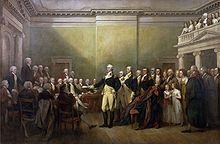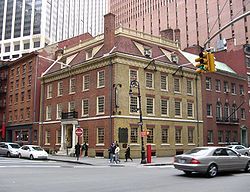“Punting the Pundits” is an Open Thread. It is a selection of editorials and opinions from around the news medium and the internet blogs. The intent is to provide a forum for your reactions and opinions, not just to the opinions presented, but to what ever you find important.
Thanks to ek hornbeck, click on the link and you can access all the past “Punting the Pundits”.
Paul Krugman: Send in the Clueless
There are two crucial things you need to understand about the current state of American politics. First, given the still dire economic situation, 2012 should be a year of Republican triumph. Second, the G.O.P. may nonetheless snatch defeat from the jaws of victory – because Herman Cain was not an accident.
Think about what it takes to be a viable Republican candidate today. You have to denounce Big Government and high taxes without alienating the older voters who were the key to G.O.P. victories last year – and who, even as they declare their hatred of government, will balk at any hint of cuts to Social Security and Medicare (death panels!).
And you also have to denounce President Obama, who enacted a Republican-designed health reform and killed Osama bin Laden, as a radical socialist who is undermining American security.
So what kind of politician can meet these basic G.O.P. requirements? There are only two ways to make the cut: to be totally cynical or to be totally clueless.
Ray McGovern: Are Americans in Line for Gitmo?
Though the 9/11 attacks occurred more than a decade ago, Congress continues to exploit them to pass evermore draconian laws on “terrorism,” with the Senate now empowering the military to arrest people on U.S. soil and hold them without trial, a serious threat to American liberties
Ambiguous but alarming new wording, which is tucked into the National Defense Authorization Act (NDAA) and was just passed by the Senate, is reminiscent of the “extraordinary measures” introduced by the Nazis after they took power in 1933.
And the relative lack of reaction so far calls to mind the oddly calm indifference with which most Germans watched the erosion of the rights that had been guaranteed by their own Constitution. As one German writer observed, “With sheepish submissiveness we watched it unfold, as if from a box at the theater.”
The writer was Sebastian Haffner (real name Raimond Pretzel), a young German lawyer worried at what he saw in 1933 in Berlin, but helpless to stop it since, as he put it, the German people “collectively and limply collapsed, yielded and capitulated.”
“The result of this millionfold nervous breakdown,” wrote Haffner at the time, “is the unified nation, ready for anything, that is today the nightmare of the rest of the world.” Not a happy analogy.
The Senate bill, in effect, revokes an 1878 law known as the Posse Comitatus Act, which banned the Army from domestic law enforcement after the military had been used and often abused in that role during Reconstruction. Ever since then, that law has been taken very seriously – until now. Military officers have had their careers brought to an abrupt halt by involving federal military assets in purely civilian criminal matters.
Jack Resnick:
Bring Health Care Home
Patients who are treated at home by a doctor and nursing staff who know them intimately and can be available 24/7 are happier and healthier. This kind of care decreases the infections, mistakes and delirium, which, especially among the elderly, are the attendants of hospital care. And it is far more efficient. According to a 2002 study, for the patients treated by the Veterans Affairs’ Home Based Primary Care program, the number of days spent in hospitals and nursing homes was cut by 62 percent and 88 percent, respectively, and total health care costs dropped 24 percent. [..]
The fact that this care is possible at home means that the role of hospitals must change. Acutely ill patients who need operating rooms or intensive care will still be brought to hospitals. But they should be quickly discharged to the care of the doctors and nurses who know them best.
For too long the institutions that make up our health care system – hospitals, insurers and drug companies – have told us that “more is better”: more medicines, more specialists, more tests. To rein in spending and deliver better care, we must recognize that the primary mission of many an institution is its own survival and growth. We can’t rely on institutions to shrink themselves. We need to give that job to patients and their doctors, and move health care into the home, where it is safer and more effective.
John Bonifaz: Restore Democracy to the People with 28th Amendment
America is at a crossroads. Shall we be governed by people or by corporations?
If you thought we had already answered that question more than two centuries ago, you’re right. The framers of our Constitution were clear that we were to be a government of, for and by the people. They recognized that corporations were not people and that the Constitution did not guarantee corporations rights intended for people.
Yet, five justices of the current U.S. Supreme Court think otherwise. In their January 2010 Citizens United v. FEC decision, they ruled that corporations have the same free-speech rights as people and can spend unlimited amounts of their corporate money in our elections. No matter that corporations are artificial entities created through state corporate charter laws. No matter that corporations do not breathe, do not think and do not have consciences. No matter that corporations have advantages you and I do not: limited liability, perpetual life and the ability to aggregate and distribute wealth. According to these five justices, corporations are people.
New York Times Editorial: Pain in the Public Sector
Buried in the relatively positive numbers contained in the November jobs report was some very bad news for those who work in the public sector. There were 20,000 government workers laid off last month, by far the largest drop for any sector of the economy, mostly from states, counties and cities.
That continues a troubling trend that’s been building for years, one that has had a particularly harsh effect on black workers. While the private sector has been adding jobs since the end of 2009, more than half a million government positions have been lost since the recession.
In most cases, states and cities had to lay off workers because of declining tax revenues, or reduced federal aid because of Washington’s inexplicable decision to focus more on the deficit in the near term than on jobs.
John Nichols: A Republican Chooses Not to be Ridiculous: Ron Paul Trumps Trump
Ron Paul is far from perfect. But the Texas congressman and maverick GOP presidential contender brings to the 2012 race a record far more worthy of commendation than those of his competitors for the Republican nomination. [..]
Confronted with the prospect of a participating in a debate hosted by the second most absurd figure in American public life, Donald Trump, Paul simply said “no.”
The campaign of the candidate who, in the new Des Moines Register survey is running second in the field of GOP presidential contenders with less than a month to go before Iowa’s first-in-the-nation caucuses, issued a delightfully snarky statement [..]
Ron Paul may not win the presidency, but he is winning the debate about the debate with Donald Trump.
But even if Trump will not have a serious presidential contender on his debate panel, he will not be alone.
The second most absurd figure in American public life will reportedly be joined December 27 by the most absurd figure in American public life: Newt Gingrich.
Ari Melber: Donald Trump’s Debate Power: It’s About Race
Yes, Donald Trump is back. His elevation as a moderator of a pivotal debate in Iowa on December 27 – the Republican candidates’ final joint appearance before voting begins – provides a sad but fitting coda to this unhinged primary season.
When the news broke over the weekend, the media largely reacted with lighthearted derision. The Times led the Trump news by announcing, “it’s officially a reality television Republican primary now,” while several commentators said the debate is basically an SNL skit that writes itself. I’m all for mocking The Donald, but these waves of satire do risk obscuring the dark side of this news.
Let’s be clear. In Republican politics this year, Donald Trump’s signature issue, and narrow-but-intense constituency, was built on a race-baiting effort to dislodge the President’s long-form birth certificate from the Hawaii Department of Health.*
John and I are in our Dakota kitchen in the middle of the night. Three cats – Sasha, Micha and Charo – are looking up at John, who is making tea for us two.







Recent Comments